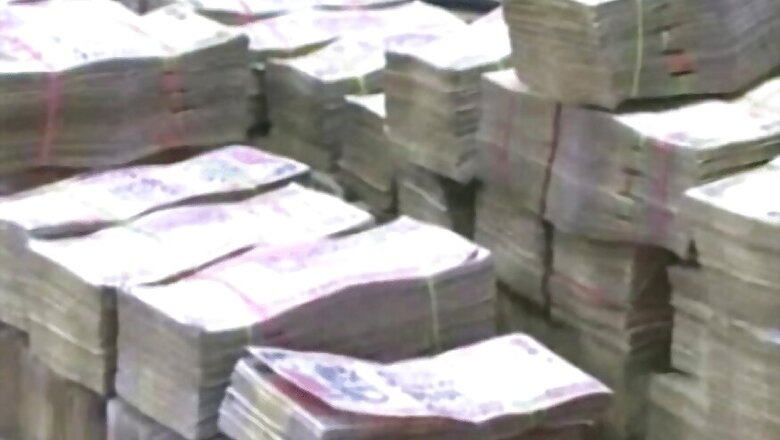
views
On the day Reserve Bank of India revealed in its annual report that Rs 15.28 lakh crore, or 99 percent of the Rs 15.44 lakh crore scrapped currency notes, came back into the system after demonetisation, News18's Tushar Dhara caught up with Pronab Sen, the former Chief Statistician of India and Secretary of the Ministry of Statistics and Programme Implementation, to understand the import of the RBI's report. Edited Excerpts:
Rs 15.28 lakh crore, or 99% of demonetised cash is back in the banking system. Your first reaction?
This was expected, we have been saying this. There were massive deposits into the banking system through money laundering operations.
The question is: What are they doing about it? The RBI is only responsible for the monetary part of it. The follow-up should have been done by the I-T dept. So far there is no indication that it has happened.
But the government puts out weekly reports that so many shell companies are being investigated, so many PAN cards have been cancelled etc.?
As far as shell companies are concerned it has nothing to do with demonetisation. The identification of shell companies has been going on for some time. The benefit of demonetisation is that the money has come back to banking system. You had Rs 15.28 lakh crore coming back into the banking system. That's a lot of money. Once it is in the banking system you could identify both the people putting in money and taking out money. But the question is: How creatively could you utilise this information? While this process was going on, from November to March, I would have thought the I-T department would be gearing up for this kind of analysis.
You should be looking at both deposits and withdrawals and asking questions. So far, I don't see any evidence of that. 'Fishy money' doesn't mean anything by itself. Unusual deposits can happen all the time. The point is you have to link those deposits with withdrawals, and track account to account transfers.
Does this mean most of the black cash has become white?
No, the colour of the money does not change. Earlier, the black money was anonymously held so the government had no idea. Now, with almost 99% of currency back in the banking system, it has a name to connect to those anonymous holders of cash. The question is: Has the I-T department worked out if the deposits totaling Rs 15.28 lakh crore can be connected to individual names? They should have looked at deposits across the banking sector and said: Can I put a name to that? There is no evidence that that has happened. The I-T department puts out figures on I-T collections, and other such numbers, but if any of this is linked to this exercise is not clear.
What does this do to the credibility of the government and RBI?
The RBI's credibility was shot from day one, they came out in poor light. But the hope was that after demonetisation the action would shift to the tax department, given that your window of opportunity is not going to be open for very long. The I-T department shot off a bunch of letters to people saying "explain this cash". But after that there seems to have been no follow-up action. We took such a jolt and nothing has happened. It's back to business as usual. The feeling that will gain ground is that the government is incapable of cracking down despite such a huge jolt. This was the one chance to put names against those who were earlier suspected. If you've missed the opportunity the country has paid a high price.
The RBI 'recommended' demonetisation to the government? What does that say about the independence of the RBI?
On these matters one should be clear that the RBI is an arm of the government. You cannot put the RBI on a higher pedestal than the government. But in all of this the definition of government is not the Prime Minister alone, but the union cabinet. That's the Constitutionally defined position of government. Now the million dollar question is this: When the RBI recommended demonetisation, was it following the directive of the union cabinet or following the instructions of the government nominees [on the RBI board]? If it was the latter then the RBI is culpable.
The report also acknowledges that demonetisation crippled consumer demand. Does this admission mean that the economy was mismanaged because of the move?
When you suck out 86% of currency there will be a demand shock.
That's only the first round effect. The real impact is the hit on the production side. The second and third round effect will be on the future generation of income and consumption. By how much that was affected, we don't know. We don't know whether consumption has come down permanently. What we do know is that household savings have dropped, the first time in many years that this has happened. When the savings rate drops the investment rate is also affected.
Even though there may have been no economic benefits, there was a lot of political support for the move. How do you explain that contradiction?
There is no contradiction. Mr Modi got it right. Corruption has been a major issue in our politics for a long time. Over the years the feeling has built up that every political candidate is corrupt. When demonetisation happened voters felt "Here's a man who said he would do something about it, and he did something. We may have suffered, but at least he tried. Everyone else only pays lip service to corruption, but at least the Prime Minister tried to do something about it." This was why demonetisation was popular with the masses.
What will be the effect now politically?
Very little, I see no change in Mr Modi's popularity. Much of the stuff you and I are talking of is restricted to an increasingly vanishingly small set of people. The common man could feel the first round shock and can feel the second, third and fourth round shock as well, but is unable to connect effect with cause. I don't see Mr. Modi's popularity suffering.











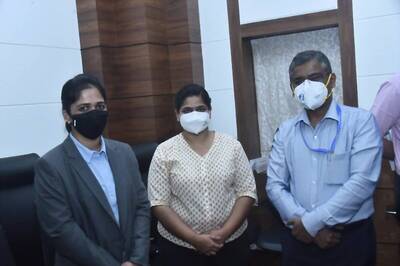




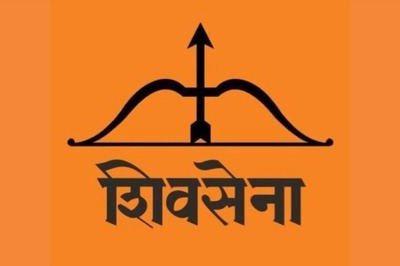
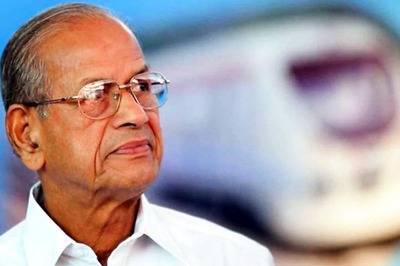

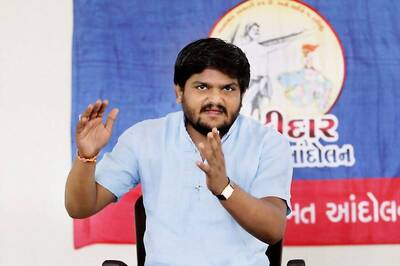
Comments
0 comment